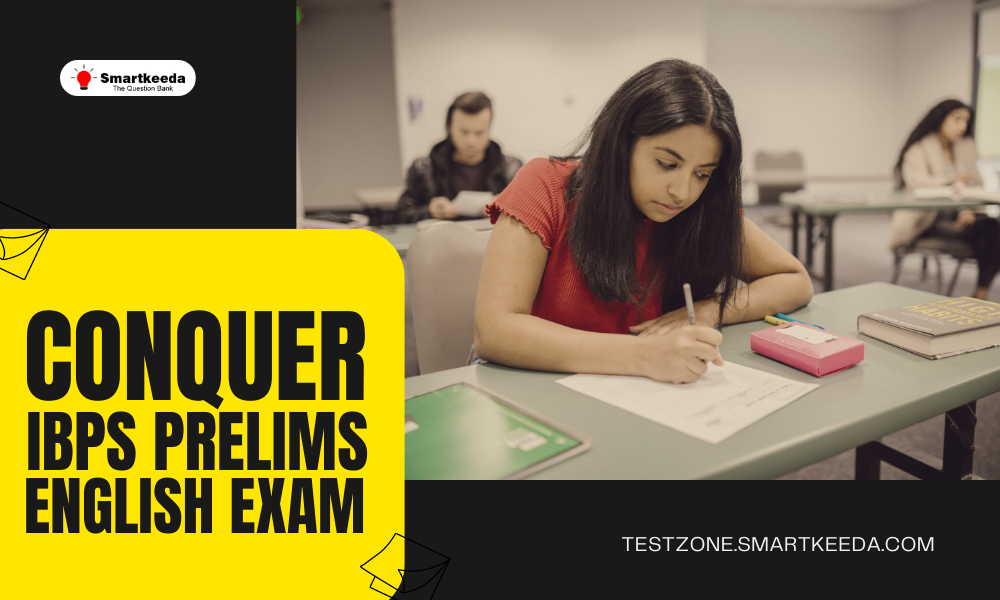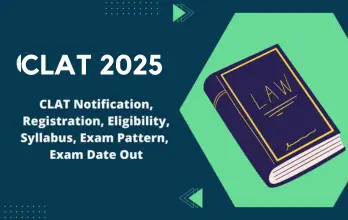
English is widely regarded as one of the most scoring sections of IBPS exams, and with the right approach, it presents an opportunity to shine and outperform other sections. Unlike time-consuming sections such as logical reasoning or quantitative aptitude, the English section allows for efficient attempts at all the questions. This enables candidates to make the most of their time and maximize their overall score, increasing their chances to crack the IBPS prelims exam successfully.
In this blog, we will look into the intricacies of cracking the English section in the IBPS preliminary exams & discuss effective strategies and tips on how to crack the IBPS Prelims English Paper.
Overview of the IBPS Prelims English Section
A strong performance in the English section can significantly boost your overall score in prelims and help you easily qualify for the next stage of the IBPS exams. Therefore, understanding the structure, syllabus, and key topics of the English section is essential to plan your preparation strategy accordingly and crack IBPS Prelims.
Through this table, you will get a comprehensive understanding of the pattern of questions asked in this section and the syllabus of English for IBPS prelims.
| Subject | English Language |
| Phase | Prelims |
| Number of Questions | 30 |
| Maximum Marks | 30 |
| Negative Marking | -0.25 |
| Time Allotted | 20 Minutes |
Topics to Cover for IBPS Prelims English Section
The syllabus for the English section in the IBPS Prelims is generally consistent across various IBPS exams. This uniformity allows candidates to prepare for the English section in a standardized manner, irrespective of the specific IBPS exam they are appearing for. While there might be slight variations in question distribution or difficulty level, the core topics and concepts remain largely the same.
Understanding the syllabus and the topics asked in the IBPS exams will help you to streamline your preparation strategy and focus on the essential areas of the English section.
| IBPS Prelims Topics for English Section | |
| Topics Asked | Approximate Number of Questions |
| Reading Comprehension | 10-15 |
| Fill in the blanks | 5 |
| Cloze Test | 5 |
| Error Detection | 5 |
| One word substitution | 2-3 |
| Multiple meaning | 5 |
| Para Jumbles | 5 |
| Sentence Correction | 5 |
| Word Association | 5 |
| Jumbled Sentences | 5 |
| Active/Passive Voice | 2-3 |
Importance of vocabulary in the English paper
Vocabulary plays a crucial role in cracking the English section of IBPS exams. The English section of IBPS Exams typically consists of questions related to reading comprehension, cloze test, Error Detection, One word substitution, sentence improvement, Word Association, and Multiple meanings. Such questions require a strong command of vocabulary.
Having a wide range of vocabulary enables you to understand and interpret the passages effectively in reading comprehension. It helps in comprehending the context and meaning of the given sentences in spotting errors and sentence improvement questions. Moreover, vocabulary knowledge aids in solving cloze tests by accurately choosing the most appropriate words to fill in the blanks. It also contributes to tackling para jumbles by identifying the logical sequence of sentences based on the understanding of different vocabulary words used.
Effective strategies for expanding your vocabulary
Building a robust vocabulary essential to excel in the English section and improve overall performance in IBPS exams. However, expanding vocabulary is an ongoing process that requires consistent effort and practice. By incorporating the following strategies into your study routine, you can gradually enhance your vocabulary skills and improve your performance in the IBPS exams.
1. Cultivate the Habit of Reading
Engage in diverse reading materials such as newspapers, magazines, novels, and online articles. Reading extensively not only introduces you to new vocabulary but also helps you understand how words are used in different contexts. While reading, make it a habit to note down any unfamiliar words that you come across. Later, take the time to look up their definitions, pronunciation, and example sentences to gain a thorough understanding of their meaning and usage. Keep a notebook or use digital tools to keep track of these new words.
2. Learn through Root Words
Learning through root words is indeed a powerful method to enhance your vocabulary smartly and efficiently. Root words provide the foundation for many words in the English language, and understanding their meanings can help you decipher the meanings of related words. By focusing on a few root words, you can expand your vocabulary exponentially by learning multiple words associated with each root.
For instance, by recognizing the root word "cide" as meaning "killing," you can easily remember words like "homicide," "suicide," "genocide," and more. This approach allows you to learn a cluster of words at once, making it easier to recall and apply them in various contexts. By incorporating root word learning into your vocabulary-building strategy, you can develop a deeper understanding of word meanings and improve your overall language skills.
3. Play Vocab Games & Quizzes
Engaging in short English quizzes can be an effective way to enhance your vocabulary and improve your English proficiency, especially when preparing for exams like IBPS. Quizzes provide an interactive and engaging platform for learning, making it easier to memorize new words. The QUDOO App, developed by Smartkeeda is a valuable resource for this purpose.
Playing quizzes on the Qudoo app can help you not only in expanding your vocabulary but also in sharpening your skills in areas such as synonyms, antonyms, errors, fillers, and para jumbles, which are commonly tested in IBPS exams. Additionally, the timer-based quizzes can assist in improving your reading speed and comprehension abilities. By incorporating these quizzes into your daily routine, you can make progress in your English language skills while making efficient use of your free time.
• Click here to download & play free quizzes on Qudoo App!
4. Use Flashcards and Word Lists
Utilizing flashcards and word lists is an effective strategy for expanding your vocabulary skills, especially for IBPS Exams. Write down new words on one side of the flashcard and their meanings or definitions on the other side. Review and revise these lists consistently to reinforce your vocabulary skills.
Enhancing Reading Comprehension Skills
Reading comprehension is one of the most important topics of the English section that consistently appears in IBPS exams. Typically, out of a total of 30 questions in the English section, at least 10 questions are dedicated to reading comprehension which means there is a potential to secure 10 easy marks in this particular topic. Having strong reading comprehension skills not only enables you to navigate through passages swiftly but also helps you save time for other questions in this section.
To improve your reading comprehension skills for IBPS exams, here are some effective tips:
- Begin by reading simpler passages before moving on to more complex ones. This gradual progression allows you to build your comprehension skills and gradually tackle more challenging passages.
- Since IBPS exams often include passages from editorials, make it a habit to read editorials from newspapers or online sources regularly. This will expose you to a variety of topics and writing styles, helping you develop a deeper understanding of complex passages.
- While reading, actively try to make connections between different ideas, concepts, and examples presented in the passage. This will help you grasp the central idea of the passage and make reading more interesting.
- Train yourself to identify key ideas, main arguments, and supporting details within a passage. This will help you to understand the viewpoint of the author and answer questions more easily.
- After reading a passage, take a moment to review the main points of the passage. This simple process will help you retain important information.
- Set a timer while practicing reading comprehension to build your reading speed. Challenge yourself to read and comprehend passages within a specific time frame. This will improve your reading speed and ability to manage time effectively during the actual exam.
- The key to enhancing reading comprehension is consistent practice. Set aside dedicated time each day to read passages and attempt Reading Comprehension Quizzes. This will help you to improve your comprehension skills and familiarize you with the pattern of questions asked in IBPS Exams.
Remember, improving reading comprehension skills takes time and effort. By implementing these tips and practicing regularly, you can enhance your comprehension abilities and perform well in the reading comprehension section of IBPS exams.
Attempt Mock test and Practice test
While gaining knowledge and understanding concepts asked in the English section is essential, it is equally important to apply that knowledge in a simulated exam environment. IBPS Prelims mock tests provide a realistic experience of the actual exam conditions, allowing you to identify the challenges you may face on the examination day.
Attempt English Sectional Tests
The English sectional tests offered by Smartkeeda are designed and developed by experienced subject matter experts in the English language. These tests are tailored to the latest pattern and include updated questions that are frequently asked in IBPS Exams. By practicing with these tests, candidates can familiarize themselves with the exam format and enhance their preparation for the English section.
• Click here to attempt IBPS PO Prelims English Sectional Test!
• Click here to attempt IBPS Clerk Prelims English Sectional Test!
Discover your strategy
IBPS Prelims mock tests enable you to discover a strategic approach to the English section. For Example Some students find it beneficial to attempt the miscellaneous questions, such as fill in the blanks, error spotting, or para jumbles, before tackling the Reading comprehension (RC) passages. This approach allows them to warm up and gain momentum by quickly answering questions that require less time and effort.
On the other hand, some students prefer to tackle the RC passages right at the beginning of the exam. They believe that starting with RC helps them allocate ample time to carefully read and comprehend the passages, as RC questions often require a deeper understanding of the text.
The choice of strategy ultimately depends on the individual's comfort and confidence level. It is crucial to practice both approaches during mock tests and assess which one works best for you. Regularly practicing IBPS Prelims mock tests will help you develop a personalized strategy that maximizes your performance in the English section & crack IBPS Prelims easily.
Practice Topic Tests
If you are struggling to score in any particular topic of the English language section of IBPS Exams, Smartkeeda offers topic-wise quizzes for each section of IBPS exams. Whether you are struggling with vocabulary, grammar, reading comprehension, or any other topic, these Topic Tests provide targeted practice from beginner to advanced levels, i.e., from clerk pre level to PO mains levels. By regularly practicing these quizzes, you can develop a thorough understanding of each topic of the English language and enhance your overall performance in the English section of IBPS exams.
Utilizing Previous Year Questions for Effective Preparation
Utilizing previous year questions is a highly effective method to crack the English of IBPS exams. By attempting English previous year questions, you can identify your areas of strength and weakness in the English section of IBPS Exams. These questions acquaint you well with the format, structure, and difficulty level of the questions asked in IBPS Exams & aid in building exam-specific strategies and time management skills.
Additionally, previous year questions offer a chance to identify recurring topics or concepts that have been frequently asked in the exams. This enables you to prioritize your study efforts and focus on the areas that hold more significance.
Final Preparation Tips and Strategies
To perform well in the English section of IBPS exams, it is essential to have a structured study plan. Here are some important tips to follow:
• Allocate specific time slots for each topic, focusing on vocabulary, grammar, reading comprehension, and other important topics asked in the IBPS Exams.
• Practice at least 2 English Sectional Tests per week and identify your weak areas. Practice your weak areas with the help of English Topic Tests at Smartkeeda. Having a well-organized study plan will help you stay focused, manage your time effectively, and cover the entire syllabus thoroughly.
• In the final days leading up to the exam, adopt smart revision techniques and quick tips. Review key grammar rules, vocabulary lists, and flashcards created during preparation.
• Ensure you get enough sleep the night before the exam to be well-rested and alert during the test. A good night's sleep improves concentration and memory recall.
• On the day of the exam, have a nutritious breakfast to provide energy for sustained focus. Stay confident, manage your time wisely, and approach each question with a calm and composed mindset.
Mastering the English section of IBPS exams requires dedication, consistent practice, and a strategic approach. By incorporating the aforementioned tips and strategies into your preparation, you can enhance your vocabulary, improve your reading comprehension skills, and crack the English section of IBPS exams. With the right mindset and diligent preparation, you can conquer the English section and achieve your goals. So, keep pushing forward, embrace the journey, and let your hard work pave the way to success.

Author : Anjali
Hi, I am Anjali, a Probationary officer at a leading Public Sector Bank. With a passion for helping aspiring bankers, I have embarked on a journey to share my knowledge and insights through informative blogs. Having successfully cleared various bank exams myself, including IBPS PO XII, I understand the challenges and the importance of effective preparation. Through my blogs, I aim to provide valuable tips, strategies, and resources specifically tailored for bank exams, empowering the aspirants to achieve their dream of a successful banking career.
FAQ’s
IBPS Prelims English Paper is one of the 3 sections asked in the prelims of IBPS exams that consists of multiple-choice questions on topics such as vocabulary, grammar, reading comprehension, cloze test, para jumbles, and spotting errors. This section assesses a candidate's language skills, comprehension abilities, and grammatical proficiency.
To prepare for the IBPS Prelims English Paper, create a structured study plan covering vocabulary, grammar, reading comprehension, and other important topics asked in this section. Practice regularly with English mock tests at Smartkeeda and identify areas for improvement to work on them. Utilize previous year question papers and adopt effective time management strategies.
Reading Comprehension, Error spotting, Sentence Correction, Misspelled Words, Rearrangement of Sentences, Cloze Test, & Sentence Connection are some of the important topics that should be focused on while preparing for the English section of IBPS Exams.
In IBPS exams, time management is extremely important as it determines your ability to complete all questions within the given timeframe. Efficiently allocating time to each question ensures that you don't rush through or miss out on valuable marks.
Yes, there are specific strategies for tackling different question types in the English section. It is important to assess the difficulty level of each question beforehand and prioritize them based on your proficiency. If you are less confident in a particular topic, it is advisable to attempt it towards the end, focusing on the questions you are more comfortable with first. This approach maximizes your efficiency and allows you to allocate sufficient time to challenging areas.





